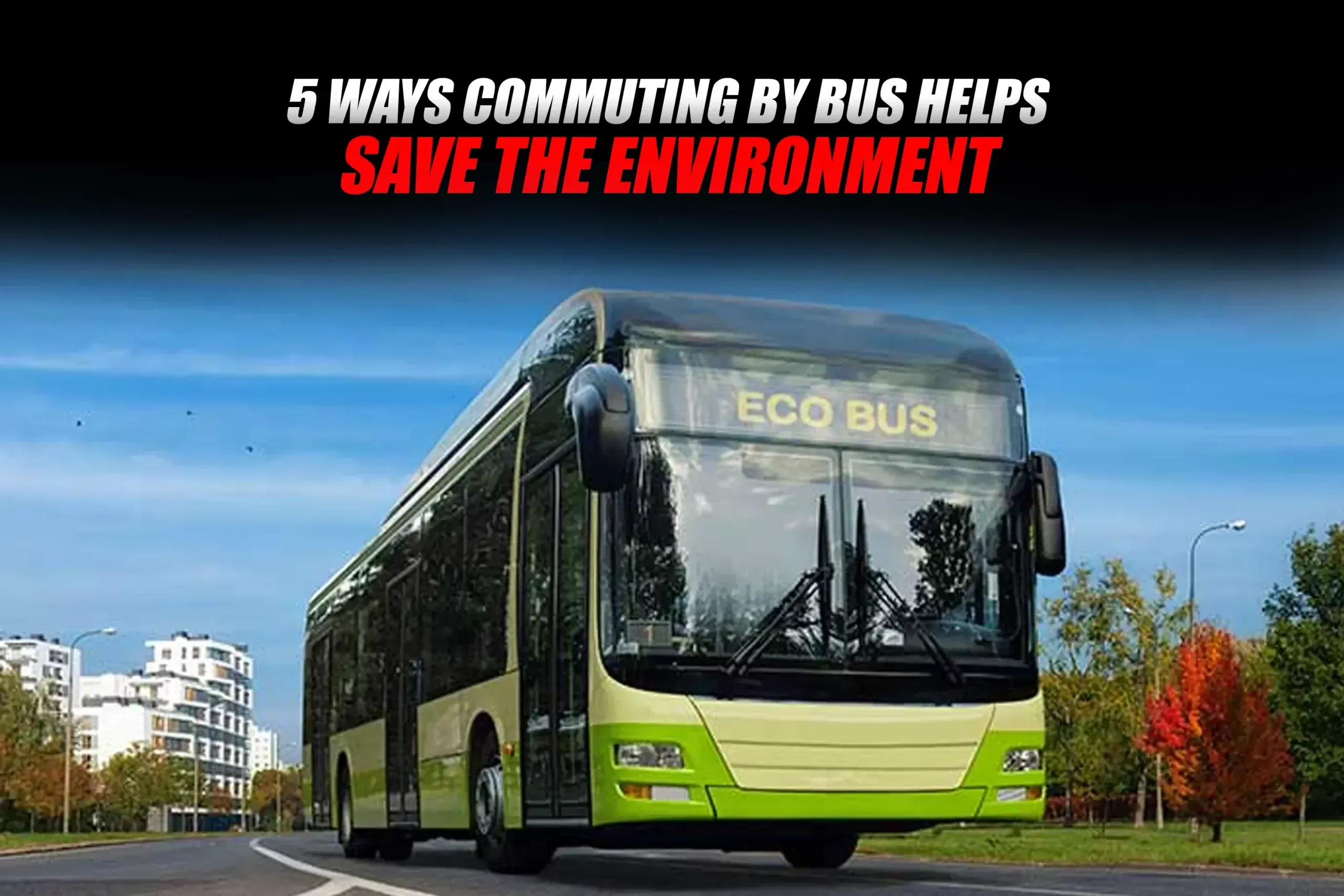In the congested cities of India, daily life can mean hours of commuting, honking horns, and congested roads filled with vehicles. Though personal cars seem convenient, they quietly drain the environment. Commercial buses provide a wiser and more environment friendly choice. They transport many passengers simultaneously, relieve traffic congestion, and keep the air cleaner. Riding the bus is not just a sensible alternative, it's a choice that helps preserve the environment, one ride at a time.
1. Reduces Carbon Emissions
India possesses more than 34 crore registered vehicles, 80% being two-wheelers and cars. Delhi itself has more than 1.2 crore vehicles, more than the population of most countries. Delhi frequently registers an AQI between 250–400, much higher than the safe limit of 50 prescribed by WHO. One fully loaded commercial bus replaces 30–40 cars on average and cuts down CO₂ emissions per passenger kilometer by almost 80%. Latest commercial vehicles with electricity or CNG engines lower harmful emissions even more. Opting for buses directly cuts down on carbon footprint and enhances urban air quality.
2. Minimizes Traffic Congestion
Traffic congestion increases fuel consumption and emissions. Vehicles idle, engines run inefficiently, and air quality suffers. Buses in India reduce congestion by consolidating many passengers into a single vehicle. Fewer cars on roads create smoother traffic flow. Cities like Mumbai, Delhi, and Bengaluru benefit when buses reduce peak-hour traffic. Efficient bus networks improve fuel efficiency for all vehicles and lower urban noise levels.
3. Uses Energy Efficiently
Buses use less fuel per passenger than cars. A fully loaded commercial vehicle traveling 20 km consumes much less energy per person than the same trip in individual cars. Electric and hybrid buses reduce energy use even more. Energy-efficient commuting lowers fossil fuel demand, cuts greenhouse gas emissions, and supports sustainable transportation. Bus commuting, therefore, conserves both fuel and environmental resources effectively.
4. Lowers Noise Pollution
Environmental harm isn’t only about what we see, it’s also what we hear. Private vehicles fill streets with constant honking, revving, and traffic noise. Commercial buses reduce the number of vehicles overall, lowering sound levels in crowded areas. Quieter roads mean less stress, healthier living spaces, and improved quality of life. Bus commuting, therefore, contributes to both cleaner air and calmer surroundings.
5. Encourages a Culture of Green Travel
Riding the bus alters more than traffic flow, it alters mindsets. Riders realize their carbon impact, fund cleaner commercial buses, and promote improved public transit options. Cities prosper when individuals use buses, driving investments in electric buses, bus-only lanes, and streamlined routes. Each bus ride reinforces a culture of responsible, sustainable commutes.
Conclusion
Bus commuting is more than a convenience; it's an environmental protection, a stress reducer, and a means to sustainable city living. Commercial buses reduce emissions, alleviate congestion, conserve energy, shield infrastructure, and promote environmentally friendly habits. With competitive prices in buses and increasing electric and hybrid vehicles, buses are not only convenient, but the intelligent option for commuters and the planet alike.
For more articles and news, stay updated with 91trucks. Subscribe to our YouTube channel and follow us on Facebook, Instagram, and LinkedIn for the latest videos and updates from the automotive world!
Also Read:
Sleeper Buses: How India’s Night Buses Are Shaping Intercity Travel
From London to Mumbai: The Forgotten History of Double Decker Buses









